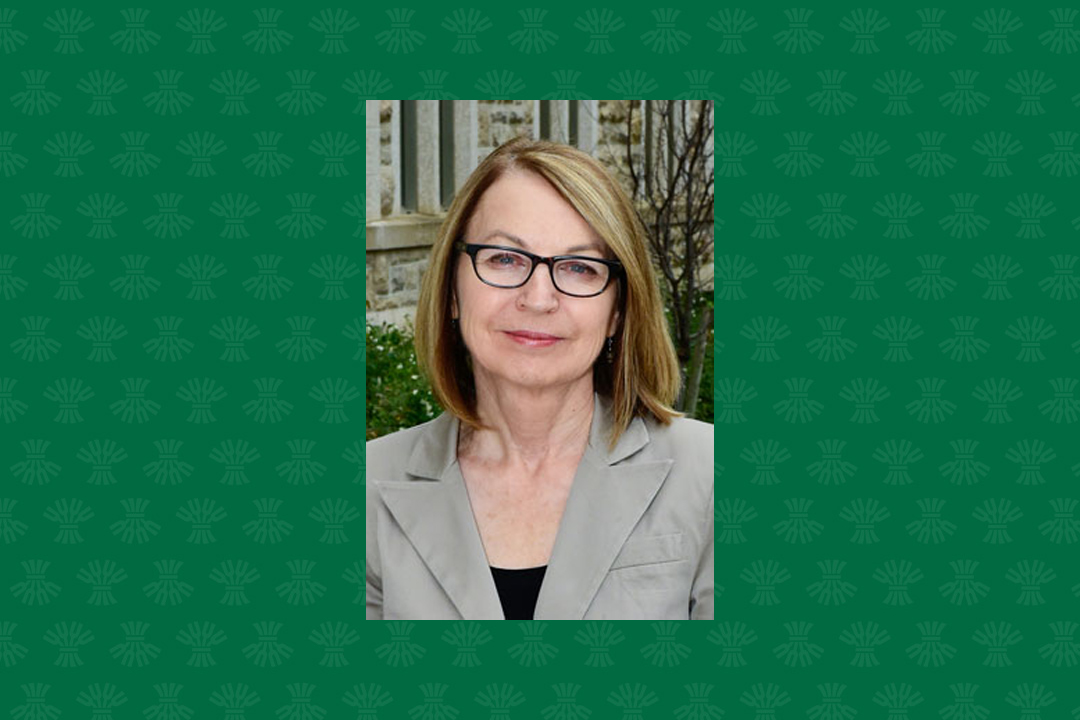
From Scratch: Rural Dementia Care with Dr. Debra Morgan
Dr. Debra Morgan (PhD) grew up on a farm and continued farming with her husband, initially working in nursing in the winter. Nursing shifts took her from neurosurgery to pediatrics, to orthopedics, then to Saskatoon's geriatric units at City Hospital and Royal University Hospital.
Listen to all episodes of the Researchers Under the Scope podcast.
"I just found that I really enjoyed working with older people," Morgan said.
She soon followed her passion for research, opting to study geriatric care as she earned her masters' and doctoral degrees in nursing.
Today, she's a professor and chair of rural health delivery at the Canadian Centre for Rural and Agricultural Health. Morgan also serves as the director of the University of Saskatchewan's specialist Rural and Remote Memory Clinic launched in 2004 as a research demonstration project and now funded by the Ministry of Health. She built and leads Saskatchewan's Rural Dementia Action Program (RaDAR).
"Twenty years ago when we started this, there was very little rural dementia research," said Morgan. "We didn't know if the best practices in the literature would work in rural settings, or how."
Early on, RaDAR team specialists observed a disproportionate number of rural patients referred to the specialist Rural and Remote Memory Clinic were for less complex diagnoses, where a specialist referral is not typically indicated.
Morgan wanted to know why those patients couldn't get care closer to home.
“Alzheimer’s disease, which is the most common type of dementia, should usually be diagnosed by primary care providers in their community," she said.
Often, she found family doctors and nurse practitioners did not feel comfortable making a dementia diagnosis.
After a provincial consultation, Morgan realized rural and remote nurse practitioners and family doctors would benefit from working in an interdisciplinary team and from a standardized assessment tool, one connected to the patient's provincial health record.
"Rural primary care providers see so many different conditions in a day, they are generalists," said Morgan. "They don't see the number of people with dementia as they would someone with diabetes or heart disease, for example."
Starting from scratch, Morgan and her team put together a one-day interdisciplinary rural memory clinic for patients in the Sun Country Health Region, using the town of Kipling, Sask. as its initial base.
During periodic memory clinics in Kipling, she'd bring together patients and their families with nurse practitioners, occupational therapists, physical therapists, home care nurses, social workers and family doctors, along with a First Link coordinator from the Alzheimer Society.
That team would assesss one dementia patient in the morning, and another in the afternoon.
Morgan has been documenting their progress each step of the way and spreading the memory clinic model to other rural communities. Six rural primary healthcare teams are now delivering these clinics and more are planned.
"Our research, we try to involve the people who will be delivering or using the services in their rural communities, as they know best what is needed to improve the quality of life of people living with dementia and their families," she said.
"Families tell us they really value having that clinic close to home, with healthcare providers that they know," Morgan said.
"It reduces that feeling of just being very isolated and alone.
In this episode, hear why Covid-19 stalled expansion plans for more than a year, and next steps for expanding the services delivered by both the specialist Rural and Remote Memory Clinic at the University of Saskatchewan, and the rural primary healthcare memory clinics.
